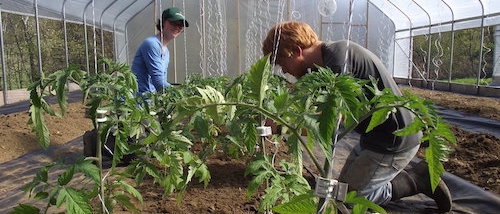Market Farming News
Wine tasting at farmers markets
March 11, 2011
Washington state is considering a bill that would allow beer and wine makers to offer samples at farmers markets. A few states, including Maryland, Massachusetts, New York, Oregon, and Virginia, do allow sampling at markets. But most states, including the #1 wine-producing state, California, still prohibit it. Winemakers say they should be allowed to sample their products just as any other vendor can. Opponents of the bill argue that public wine and beer tastings set a bad example for children.
Related Articles
.png)
The best idea in local farming you’ve never heard of: the “farm stop” with Kathy Sample & Bill Brinkerhoff of Argus Farm Stop
Read More
One perennial problem for market farmers is how to make local food and flowers available to customers every day, without having to spend seven days a week standing behind a table or giving up most of the value to a wholesaler. The farm stop is the most innovative answer to this problem we’ve heard of in years, and Kathy Sample & Bill Brinkerhoff of Argus Farm Stop are on the pod this week to tell us about it. Billed as a “year-round, everyday farmers market,” it isn’t a replacement for farmers markets, but a complement to them. In fact, many farmers make deliveries to the farm stop on and between market days.

Market-based flex CSA
Read More
Flexibility and convenience for farmer and customer
A couple of years ago my brother moved to Providence, Rhode Island, and I went with him to his local winter farmers market. One farm, Freedom Food Farm from Raynham, Massachusetts, caught my eye with their beautiful market stand and high-quality produce, so I looked at their CSA information. It fit neatly on one page and was incredibly simple. Members signed up and then came to the farm or its markets and picked out 10 items each week. End of story. I was inspired.
We decided to try it, with a few variations. In 2018 we offered the “CSA flex” as a part time option, in addition to our “classic CSA”. It was a hit, so in 2019 we added a full-time option. We currently have 25 flex members and have cut our classic CSA down to 40 members. I am mightily tempted to drop it altogether! Perhaps “CSA flex” would be a good fit for your farm.

The cost of rounding down at market
Read More
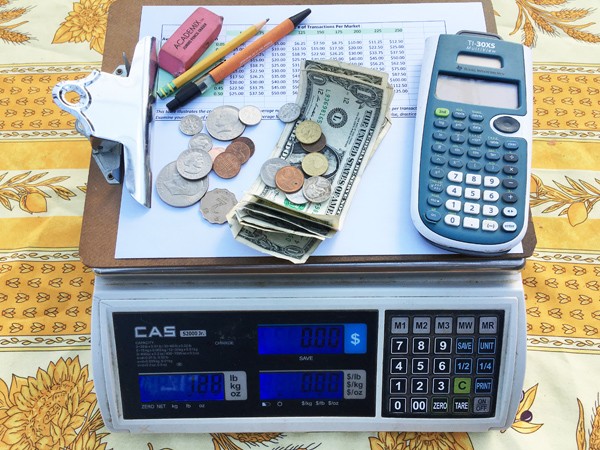 Rounding is a pricing strategy whereby smaller denominations are excluded from the grand total at checkout. That means pennies, nickels and dimes. The principal incentive for rounding at the farmers market is to expedite the checkout process.
Rounding is a pricing strategy whereby smaller denominations are excluded from the grand total at checkout. That means pennies, nickels and dimes. The principal incentive for rounding at the farmers market is to expedite the checkout process.
Handling fewer denominations simplifies transactions and reduces the wait time for customers in line. Secondary incentives include uncomplicated cash drawer management, easy deposits and straightforward change requests from the bank. In addition, quickening checkout procedures helps to diffuse the stress associated with long, bustling lines of customers.
To determine whether rounding is the right decision for your business, you must consider the benefits and contrast them with the costs. Some of the benefits described are based on assumptions, others on objective truths. For example, the checkout process is simpler when you’re not handling pennies, nickels, and dimes. This is uncontestable. But you need a more compelling analysis if you are to understand the total relationship between the benefits and costs involved.
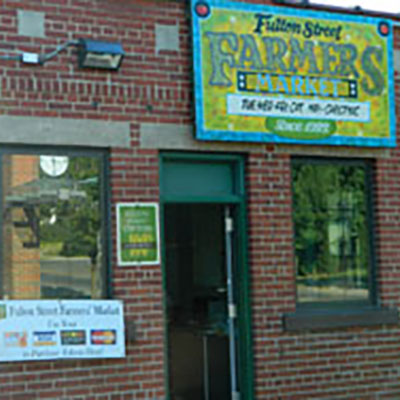
Revitalizing an old market Grand Rapids, Michigan, updates with a shelter and internet access for vendors
Read More
Grand Rapids, Michigan, is surrounded by some of the most productive fruit and vegetable farmland in the United States. To the west of the city is the largest blueberry production area in Michigan. Muck soils in the area contribute to Michigan’s ranking as #2 in the nation for fresh market carrots and celery. And north of Grand Rapids, the land is blanketed with orchards of apples, peaches, cherries, and other tree fruits.

New legal entity a good fit for markets
Read More
The social enterprise designation is often used by entrepreneurs as a way to define either non-profit or for-profit corporations that are intent upon achieving a “multiple bottom line.” The social entrepreneur either adds social good to the for-profit model, or develops income streams outside of grants or donations to the non-profit corporation. Thus, a social enterprise requires an earned income stream (such as stall fees or merchandise sales) that is then invested in the common good, such as advocating for farmers or building local economic activity.

Photo Contest Winners
Here are the winners of our farmers market display contest, which we announced in the May 2011 issue of our free e-mail newsletter. If you don't currently receive the email, click on the banner above to return to the home page and sign up in the right column. Thanks to everyone who sent us photos. The winners will receive a large packet of Genovese basil seeds, compliments of Seeds from Italy.
Read More
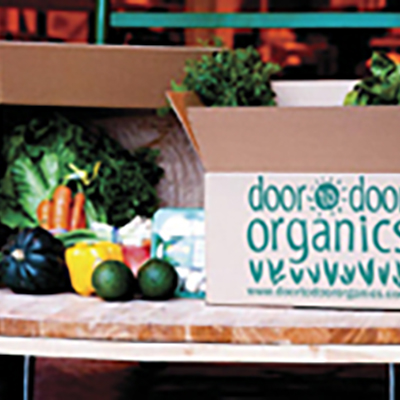
Home delivery: competitor or ally?
Read More
Home delivery services of fresh produce are proliferating across the U.S. and Canada. These businesses run the gamut from corporate supermarkets to mom-and-pop entrepreneurs. Total sales are estimated at $200-300 million a year.

A solution to market crowding
Read More
In 2009, our farmers’ market in Tulsa, Oklahoma, found itself facing an exciting but stressful problem: We had entirely outgrown our market space. The parking lot where we held our activities was filled to the brim with vendors and customers. We had a new vendor waiting list four pages long and no place to accommodate them. Many existing vendors wanted to expand their operations to two booths but had nowhere to go. The market’s Board of Directors had a decision to make. Either we stayed put and remained satisfied with the level of customers and vendors the old location could support, or we moved to a new spot.
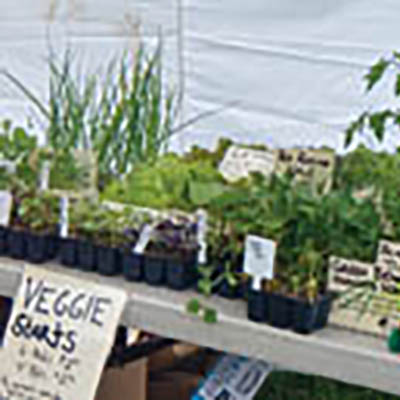
Selling young plants at farmers markets
Read More
If you’re already growing your own transplants, you might want to consider selling vegetable, flower, or herb starts to bring in a little extra spring money. You’re already doing most of the work: mixing soil, sowing, watering, and greenhouse climate control. But there are some important differences in how one grows plants for sale versus for on-farm use.

New insurance program offers both general liability and product liability for farmers market vendors
Read More
A new insurance product is available nationwide to provide both general liability and product liability coverage for farmers market vendors. The National Farmers Market Vendor Liability Insurance Program was developed by Campbell Risk Management, a company in Indianapolis, in collaboration with the Farmers Market Coalition and several state farmers market associations.
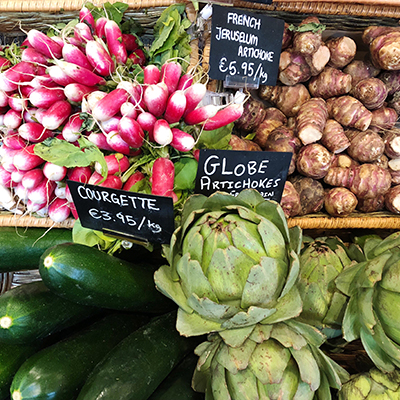
Tips to help you avoid market fatigue
Read More
When the sun beats down on a late June morning and you are feeling as fresh as a head of leaf lettuce that has been left in the sun for six hours, you need to have a few tricks up your sleeve to pull off a successful market. Nothing kills sales quicker than a wilted farmer.
Copyright Growing For Market Magazine. All rights reserved. No portion of this article may be copied in any manner for use other than by the subscriber without permission from the publisher.
